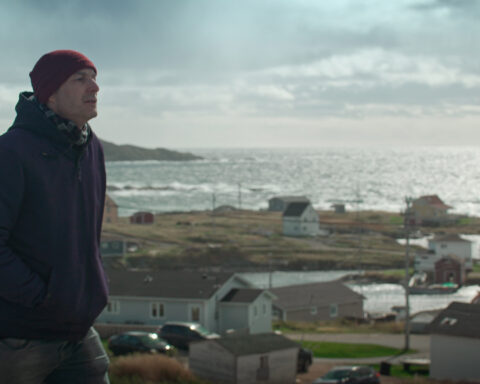I am writing this because I have been musing over the past couple of months, since Ravida Din’s abrupt departure from the NFB, on what happens when someone leaves or loses a job under controversial circumstances, especially when they have been in a position of responsibility and power. And I have been musing further on whether there is a difference in the way men and women are treated in this instance. And then even further on how the community this person is part of reacts to the news.
I met Ravida Din over the telephone when she called me up to ask if I would be interested in directing a film adaptation of Margaret Atwood’s lecture series and book, Payback: Debt and the Shadow Side of Wealth. After wrestling with it for a week or so, I asked her if we could go into development to write a treatment of what an adaptation might look like, and then decide at the end of that process, together, whether there was a film in it. In other words, I was filled with qualifications, but that did not put her off. And so began a rich journey of grappling with essentially abstract ideas that might work on film, which turned into a richer collaborative journey of actually translating these ideas into film. Eventually, that took us from rural Albania to the Gulf oil spill, from the Coalition of Immokalee Workers to Fenbrook Institution.
I have never really worked with a producer other than Nick de Pencier (my husband) and Daniel Iron (an old friend), and was at first worried that the muscle of a large organisation like the National Film Board would bear down too much on our somewhat idiosyncratic way of making documentaries. But this did not happen. Ravida has an extraordinary capacity to encourage, challenge and engage at the deepest conceptual levels, while still respecting the autonomy of the director to figure things out. And this was in addition of course to managing all the logistics of production and post-production through her office. We also carbon offset Payback —the first in-house NFB film to do so— which was not easy, given sensitivity in the organization to the anti-environmental views of our current federal government.
I think Ravida has a gift for producing creative documentaries. I also think she is one of those people who thrive in a large organization, and is especially alive to its possibilities (I recognize this because I am the opposite). She has been a dedicated part of the NFB for over 20 years, and produced/was involved in numerous award-winning, salient films. In my mind, she has not only upheld the ideals of the Board, but was trying in the last year to reinforce a focus on stories fundamental to Canadians: social, gender and environmental justice, questions of collective and individual identity, marginal perspectives.
Ravida is now a friend, which is I think what usually proceeds from exceptional working relationships. I hope there is another suitable forum for her considerable talent and I regret the loss of her vision in guiding the NFB.











